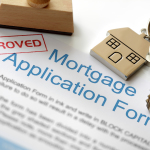By: Angela Colley
When you’re looking for a mortgage, you can use a mortgage broker or deal directly with the bank.
Each choice has pros and cons, and depending on your personality, you’ll have to decide which is right for you.
Going it Alone
If you go it alone, you deal with the bank directly. If you’re a regular customer and have a great relationship with your bank, you might receive better terms and interest rates.
If you don’t have a good working relationship with a particular bank, you should shop around. Even if you do have a bank you’ve worked with, you should consider shopping around anyway—don’t trust your bank is automatically giving you the best deal.
Keep in mind that when you’re on your own, comparing rates and terms can be time consuming and complicated. You may not know how to compare mortgage products correctly or be savvy enough to slice through all the financial jargon.
Each bank typically offers just a few mortgage options, so in order to find the best one, you will have to research them each individually.
Pros of Using a Broker
Brokers are mortgage experts. They know the market, follow trends and know which institutions offer which mortgages products. They’ll also know which lenders are offering discounts or deals.
Importantly, brokers can save you time. A smart broker can identify the most appropriate lender for your specific circumstances and know which mortgages will be most appropriate. They also handle the hassle of paperwork and interaction with lenders, which can help relieve stress from the process.
This saving of time, work and stress is a big factor for many individuals who use a mortgage broker. Some brokers develop personal and professional relationships with lenders, which may accelerate the application process.
However, these relationships aren’t always a good thing.
Cons of Using a Broker
You may want to use caution if you pick a broker. Here are three reasons why.
1. Mortgage brokers aren’t free. Broker fees typically range between 1% and 2% of the mortgage. You also need to consider who pays the broker’s fee. While many mortgage brokers receive payment from the lender, some charge sizable fees to the borrower. This is especially true if there’s a situation involving credit issues or other financial hurdles.
2. A bad broker can favor lenders, not you. The deep relationships that some mortgage brokers develop with particular lenders can work against you. For example, a broker might steer you toward a lender with whom they have a long history—and not the one that offers the best terms. Likewise, if a broker is more concerned with netting the highest commission, they won’t have your best interests in mind.
3. They’re not all created equal. Mortgage brokers aren’t equally skilled and knowledgeable. Some brokers may not know of all the deals and options, which means you won’t get the best deal out there. To find the best broker in your area, ask around. Recent home buyers and a REALTOR® may be able to steer you toward a broker who can get you better rates.
Updated from an earlier version by Moshe Pollock.




